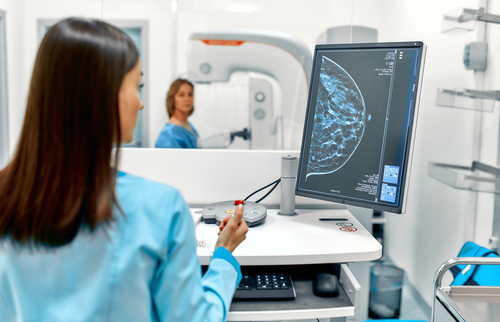
For women with BRCA1 sequence variations, magnetic resonance imaging (MRI) surveillance is associated with a reduced risk of breast cancer mortality, according to a study published in JAMA Oncology.
Researchers assessed 2488 women with BRCA1 or BRCA2 sequence variations from 59 participating centers in 11 countries. The study population completed a baseline questionnaire between 1995 and 2015 and a follow-up questionnaire every 2 years to document screening histories, incident cancers, and vital status. Patients in the population of interest were followed up from age 30 years until age 75 years, the last follow-up, or death from breast cancer. Study data were assessed from January 1 to July 31, 2023.
The results showed that 70.6% of patients had at least 1 screening MRI examination, while 29.4% did not. Following an average follow-up duration of about 9 years, 13.8% of women developed breast cancer and 1.4% died of breast cancer. The age-adjusted hazard ratios for breast cancer mortality associated with entering an MRI surveillance program were 0.20 (95% CI, 0.10-0.43; P<.001) for women with BRCA1 sequence variations and 0.87 (95% CI, 0.10-17.25; P=.93) for women with BRCA2 sequence variations.
“Results of this cohort study suggest that among women with a BRCA1 sequence variation, MRI surveillance was associated with a significant reduction in breast cancer mortality compared with no MRI surveillance. Further studies of women with BRCA2 sequence variations are needed to ascertain these women obtain the same benefits associated with MRI surveillance,” the researchers concluded.







 © 2025 Mashup Media, LLC, a Formedics Property. All Rights Reserved.
© 2025 Mashup Media, LLC, a Formedics Property. All Rights Reserved.